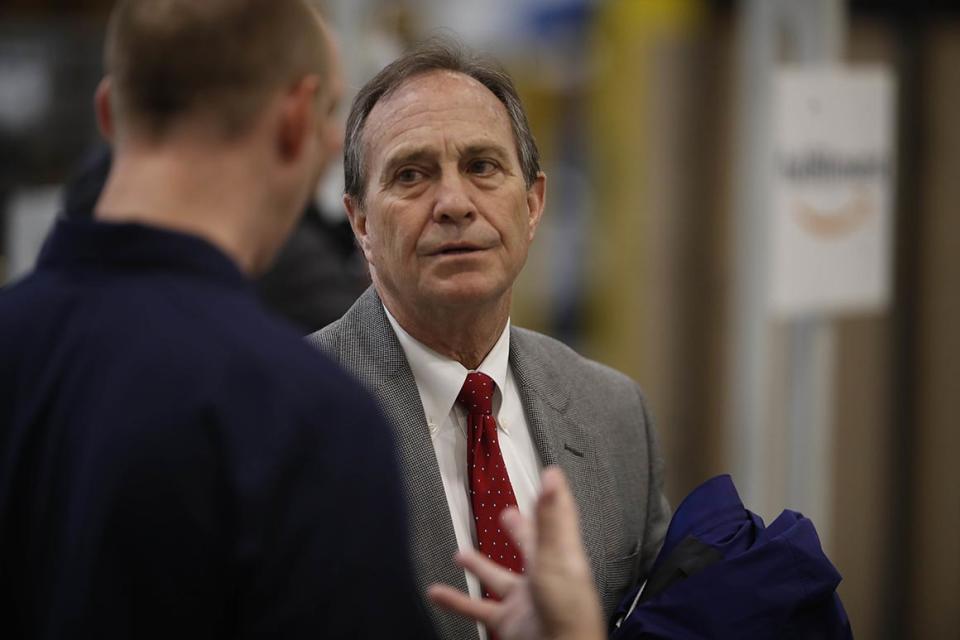Warren's private equity crusade faces resistance at House hearing
A high-profile House hearing Tuesday designed to showcase the dangers of private equity instead revealed that the industry enjoys bipartisan backing in Washington despite a wave of attacks from Sen. Elizabeth Warren and other critics.
The tone of many members at the Financial Services Committee hearing titled "America for Sale?" suggested that the Massachusetts Democrat will struggle to rally her party against the industry in the 2020 presidential campaign.
Warren, a leading contender for the Democratic nomination, has proposed legislation to overhaul private equity practices that she calls "looting" and is investigating its involvement in health care, housing and other sectors. The so-called leveraged buyout firms borrow money to take over companies and then saddle them with the debt, sometimes resulting in the takeover targets going bust.
But for much of the morning and early afternoon, business-friendly Democrats and Republicans played down the most controversial effects of the industry's investments in struggling companies, instead highlighting its benefits to the economy and questioning anecdotal evidence of the problems cited by its critics.
Rep. Alexandria Ocasio-Cortez (D-N.Y.), who has joined Warren in warning of the downsides of private equity on workers and consumers, expressed frustration toward the end, saying she was "quite upset" by many of the initial questions at the hearing.
"I wasn't sent here to safeguard and protect profit," she said. "I was sent here to safeguard and protect people."
The sympathetic attitude toward private equity from one member after another on the Democratic side of the aisle — including those who continue to accept campaign contributions from the industry — illustrated the widening gulf of views in the party about economic policy before the 2020 election.
It showed that private equity has little reason to fear the kind of dramatic overhaul that Warren and her allies have proposed to crack down on leveraged buyout firms.
"There's a continuum of private equity folks, from good actors to bad actors," said Rep. Ed Perlmutter (D-Colo.).

Committee Chairwoman Maxine Waters (D-Calif.) tried to set the tone at the outset by warning of "private equity firms destroying companies" and "preying on hardworking Americans to maximize their profits."
But then several of her fellow Democrats took a different approach. Much of the hearing alternated between private equity-embracing, Warren-bashing Republicans followed by moderate Democrats, who muddled the message Warren has been trying to convey.
Rep. Gregory Meeks (D-N.Y.) said he was actually trying to attract "private equity dollars" to a minority-owned company at risk of failing. Rep. Brad Sherman (D-Calif.) said he was "not hostile to private equity" and that the industry was being attacked for "doing things that are done elsewhere in our economy." Rep. Josh Gottheimer (D-N.J.) highlighted investment returns of private equity funds that beat the stock market.
"As a scientist and a businessman, I find myself a little bit frustrated," Rep. Bill Foster (D-Ill.) said. "We seem to be having this argument by anecdote rather than statistics."
Gottheimer, whose former staffer now lobbies for the industry, touted private equity's returns for pension funds serving teachers and firefighters — and he came with his own figures to make the point.
"Our job in the committee is to, of course, make sure we are punishing bad actors while not interfering with those that produce good returns," Gottheimer said.
Before the hearing, the Institutional Limited Partners Association, which represents pension funds, endowments and other big private equity investors, told the committee that parts of Warren's bill would be harmful to its members.
The group supports more "targeted" investor protections, including greater fee transparency, and is uneasy with Warren's proposals to expand the legal liabilities of private equity firms. Her bill would expose the firms to greater responsibility for debt they impose on acquired companies as well as the pension obligations of takeover targets.
Los Angeles County Employee Retirement Association trustee Wayne Moore, who testified Tuesday, told the committee that addressing private equity fund fees and expenses was "low-hanging fruit."
One after another, Republicans sought to tie the hearing to Warren, who is stirring divisions in her own party with calls to ratchet up taxes on the wealthy and crack down on major businesses. They mixed their attacks on Warren with positive spin about the economic benefits of private equity.
Rep. Patrick McHenry (R-N.C.), the panel's top Republican, said in his opening statement that "there's a socialist lane in the Democratic primary for president" and "this clearly is that fight for that socialist lane."
"Hooray," he said. "We're here today to debate presidential politics."
Absent from the hearing were private equity firms themselves.
The committee asked Blackstone and KKR to appear, a source familiar with the matter said. But Waters announced at the beginning of the hearing that the private equity firms the committee approached declined to send representatives.
Instead, leaders from two industry trade associations — the American Investment Council and the Small Business Investor Alliance — testified alongside the Los Angeles County Employee Retirement Association trustee, a laid-off former Toys “R” Us employee and an economist who has warned that private equity is pillaging American businesses.
A Blackstone spokesperson said the company had scheduling issues with the date. KKR declined to comment.
The committee, Waters said, will consider other ways to get the information "about what exactly is going on in our society with private equity firms."

